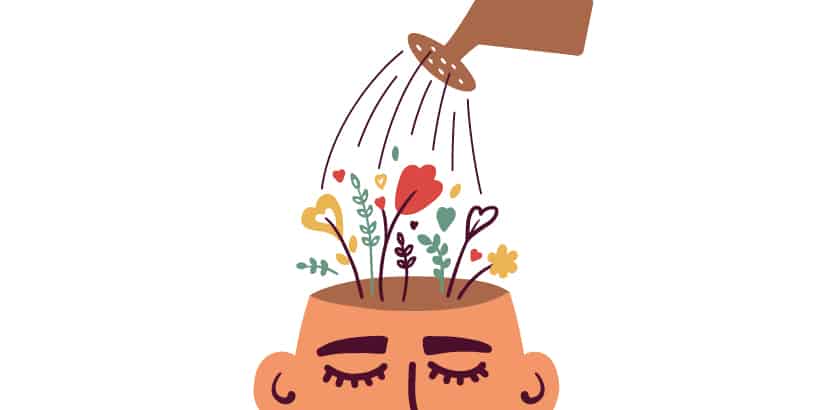Effective Mental Health Services: Solutions for each Scenario
Effective Mental Health Services: Solutions for each Scenario
Blog Article
Discovering the Connection Between Nutrition and Mental Health Renovation
The implications of our nutritional options on psychological well-being have been significantly recognized by health professionals and researchers alike. As we browse the complex landscape of modern-day way of livings, revealing the nuanced relationship in between nourishment and psychological wellness improvement may hold the secret to opening a much deeper understanding of our psychological and cognitive resilience.
Impact of Food on State Of Mind
The relationship between nutritional choices and state of mind regulation is a crucial aspect of comprehending the impact of food on mental well-being. Study has actually shown that particular foods can affect neurotransmitter activity, influencing mood and emotions. For instance, foods rich in omega-3 fatty acids, such as fatty fish, walnuts, and flaxseeds, have been connected to reduced rates of depression and boosted state of mind regulation.
Furthermore, complex carbohydrates found in entire grains, fruits, and veggies can aid manage blood sugar level degrees, which in turn can have a favorable effect on mood stability. On the various other hand, diets high in refined foods, sugar, and saturated fats have been related to a raised risk of anxiety and state of mind conditions.
Additionally, the gut-brain connection plays a significant function in mood regulation. The digestive tract microbiome, influenced by the foods we eat, can connect with the brain through the gut-brain axis, affecting mood, anxiety levels, and general psychological well-being. Making nourishing and mindful dietary choices is vital for maintaining a healthy and balanced and well balanced mood.

Essential Nutrients for Anxiousness

Furthermore, the amino acid tryptophan, located in foods like turkey, eggs, and nuts, is a precursor to serotonin production, a natural chemical understood for its duty in promoting feelings of calmness and health. Vitamin B complicated, specifically B6 and B12, are likewise essential for maintaining a healthy anxious system and might help lower stress and anxiety signs.
Integrating these crucial nutrients into a well-balanced diet can have a favorable influence on managing stress and anxiety and enhancing overall mental health and wellness.
Dietary Methods for Anxiety

One dietary technique for handling anxiety is concentrating on foods rich in omega-3 fats, such as fatty fish, flaxseeds, and walnuts. Omega-3 fats have been connected to minimizing inflammation in the brain and improving neurotransmitter function, which can positively influence state of mind. Additionally, raising the consumption of fruits, vegetables, whole grains, and lean proteins while reducing the consumption of processed sugars and foods may assist in easing depressive signs and symptoms.
Additionally, preserving sufficient degrees of vitamin D, either via sunshine direct exposure or supplementation, is vital for sustaining psychological wellness. Vitamin D shortage has actually been related to a raised risk of clinical depression, making it important to make certain sufficient consumption of this nutrient. By incorporating these nutritional techniques, people might properly match traditional therapies for depression and improve their general health.
Gut-Brain Axis and Mental Health And Wellness
Concentrating on the elaborate connection in between the gastrointestinal system and psychological health, the Gut-Brain Axis plays an essential function in influencing cognitive functions and emotional health. The Gut-Brain Axis is a bidirectional interaction network between the central nerve system and the enteric nerves, linking the cognitive and emotional facilities of the mind with outer intestinal functions. see post This axis is regulated by an internet elaborate interplay of neural, immune, endocrine, and metabolic paths.
Research study suggests that the composition of intestine microbiota, the varied neighborhood of bacteria living in the gastrointestinal system, can have a profound effect on psychological health. Discrepancies in gut microbiota, understood as dysbiosis, have been related to conditions such as depression, anxiety, and also neurodegenerative diseases. Additionally, the digestive tract microbiota plays an essential duty in the production of neurotransmitters like serotonin, which is essential for controling state of mind and emotional feedbacks.
Preserving a healthy and balanced intestine microbiota with a balanced diet rich in fiber, fermented foods, and probiotics is critical for supporting psychological health and wellness (Mental Health Services). Methods targeted at enhancing the Gut-Brain Axis use promising avenues for improving emotional health and cognitive function
Nourishment's Role in Cognitive Feature
Offered the significant impact of the Gut-Brain Axis on mental health and wellness, comprehending exactly how nourishment impacts cognitive function ends up being extremely important in advertising total wellness. Nutrition plays a critical function in cognitive feature by giving important nutrients that support brain wellness and optimum efficiency.
Trick nutrients such as omega-3 fatty acids, minerals, anti-oxidants, and vitamins are understood to improve cognitive capacities, including memory, emphasis, and analytic abilities. Omega-3 fatty acids, located in fatty fish like salmon and nuts, have been linked to enhanced memory and cognitive function. Anti-oxidants, abundant in fruits and vegetables, aid safeguard brain cells from damages triggered by totally free radicals, hence protecting cognitive feature.
Furthermore, a well balanced diet plan abundant in entire grains, lean healthy proteins, fruits, and veggies can positively affect cognitive feature by supporting blood sugar level degrees and offering sustained power to the mind. Conversely, diets high in processed foods, hydrogenated fats, and sugars have actually been associated with cognitive decrease and impaired mind feature. As a result, making informed nutritional options is crucial for keeping ideal cognitive function and general psychological health.
Verdict
In conclusion, the relationship in between nutrition and psychological health and wellness is complex view and complex. Comprehending the link in between nutrition and mental health and wellness improvement is crucial for advertising general health and addressing mental health and wellness problems.
The effects of our dietary choices on mental wellness have been progressively recognized by health experts and scientists alike. As we browse the complicated landscape of modern-day lifestyles, revealing the nuanced connection between nutrition and mental wellness enhancement might hold the key to unlocking a deeper understanding of our cognitive and psychological strength.
Structure upon the vital nutrients that sustain mental health, particularly in managing stress and anxiety disorders, the focus now moves towards analyzing nutritional techniques for dealing with anxiety.Focusing on the complex connection between the stomach system and psychological health, the Gut-Brain Axis plays an essential duty in affecting cognitive features and psychological wellness (Mental Health Services). Recognizing the connection in between nourishment and mental wellness improvement is essential for promoting total wellness and dealing with mental health problems
Report this page